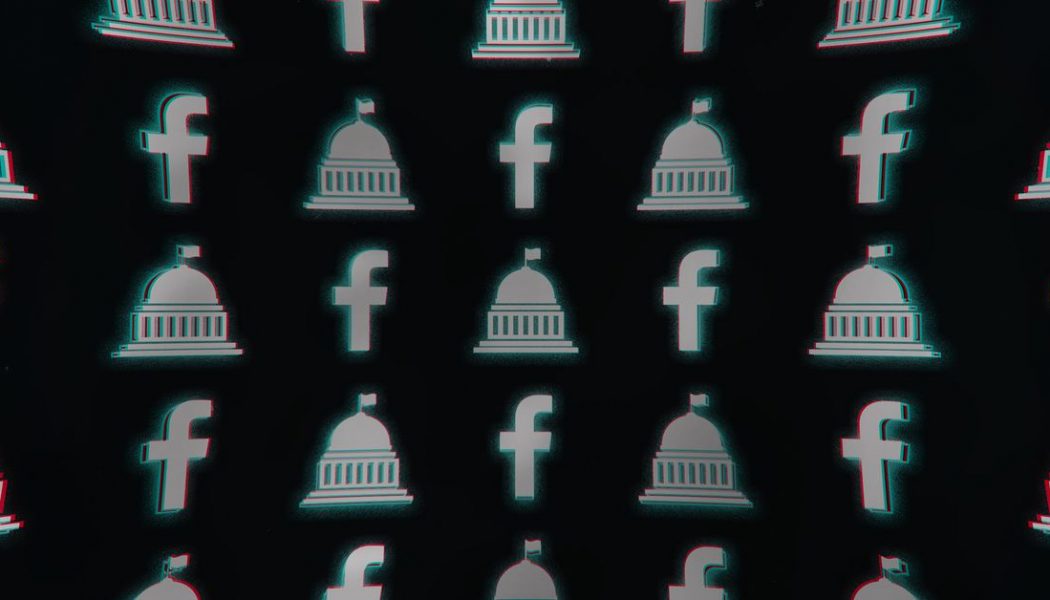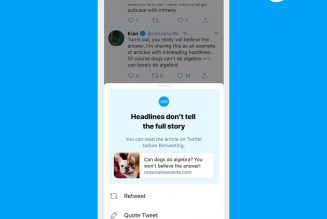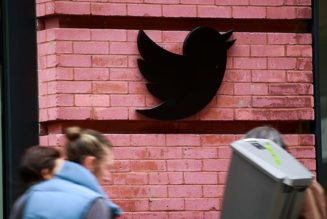
I.
After writing about the potential breakup of Facebook for years, it’s somewhat surreal for me to see the prospect actually arrive. But it’s here: the Federal Trade Commission voted 3-2 to sue Facebook for illegally maintaining a monopoly in social networking, arguing it has used acquisitions and harsh restrictions on third-party developers to prevent competitors from ever gaining a foothold.
If successful, the FTC’s case — which was joined by 46 states, the District of Columbia, and Guam — could force the company to divest itself of Instagram and WhatsApp, radically reshaping the digital economy. The move comes less than six weeks after the Department of Justice filed an antitrust lawsuit accusing Google of also maintaining an illegal monopoly on search.
“For nearly a decade, Facebook has used its dominance and monopoly power to crush smaller rivals and snuff out competition, all at the expense of everyday users,” said Letitia James, New York’s attorney general. “Today, we are taking action to stand up for the millions of consumers and many small businesses that have been harmed by Facebook’s illegal behavior.”
You can read the FTC’s complaint here; it’s 53 pages long and the only one I made it through today before succumbing to deadline pressure. The states’ complaint clocks in at 123 pages, and I expect to have more to say about it tomorrow.
As presented in the FTC’s complaint, the case against Facebook is relatively straightforward. The government argues that social networks supported by digital advertising are part of a defined market, that Facebook acquired Instagram and WhatsApp to eliminate competition in this market, and that it also restricted access to its developer platform to harm competitors.
In response, it calls for the company to divest itself of both apps. It also calls for any future Facebook acquisitions to be subject to prior approval from the FTC, for Facebook to stop “imposing anticompetitive conditions on access to APIs and data,” and to file regular compliance reports with the FTC.
Facebook, though, calls all that “revisionist history.” In a response credited from the company’s chief counsel, Jennifer Newstead, the company protests the government’s attempt to force a breakup despite having declined to stop the acquisitions of either Instagram or WhatsApp at the time.
“Now, many years later, with seemingly no regard for settled law or the consequences to innovation and investment, the agency is saying it got it wrong and wants a do-over,” Newstead writes. “In addition to being revisionist history, this is simply not how the antitrust laws are supposed to work. No American antitrust enforcer has ever brought a case like this before, and for good reason. The FTC and states stood by for years while Facebook invested billions of dollars and millions of hours to make Instagram and WhatsApp into the apps that users enjoy today.”
I expect the lawsuit that follows will be a years-long affair. (Mark Zuckerberg said as much in a note to employees Wednesday.) In the end, I think the government will likely fail in its attempt to break Facebook up. But I think it will succeed in preventing Facebook from making anti-competitive mergers in the future — and that the ongoing rise of TikTok, and whatever comes after TikTok, will begin to restore balance to the sector of the economy that Facebook dominated for the next decade.
And I’m glad the government took this case. It begins to change the standard for enforcement of antitrust law in the digital age away from the current one, which focuses on monopolies that raise prices for consumers to one that takes a broader view of consumer harm. Here, from the complaint, is the FTC’s take on what Facebook’s acquisition of Instagram, in particular, has cost us:
This conduct deprives users of the benefits of competition from an independent Instagram (either on its own or acquired by a third party), including, among other things: the presence of an additional locus of competitive decision-making and innovation; a check on Facebook Blue’s treatment of and level of service offered to users; an alternative provider of personal social networking for users untethered from Facebook’s control; and a spur for Facebook to compete on the merits in response.
As for WhatsApp, the government argues:
By acquiring WhatsApp, Facebook has suppressed the competitive threat that WhatsApp poses to Facebook’s personal social networking monopoly. Facebook has kept WhatsApp cabined to providing mobile messaging services rather than allowing WhatsApp to become a competing personal social networking provider, and has limited promotion of WhatsApp in the United States.
This can all feel a little abstract, and I’m sure Facebook will argue as much in court. It’s hard to weigh the value of Instagram and WhatsApp as they exist today against what they might have become had they remained independent or been acquired by another corporation. But from the government’s point of view, that’s exactly the point: Facebook made the market less competitive, and now we’ll never know.
II.
At the same time, I think the government’s case has a hard road ahead of it. As I wrote this month, the lawsuit would have felt much more vital two or three years ago. In the time it took the government to flesh out these arguments, many of which have been made in some form since at least 2014, TikTok was born and acquired 800 million users around the world.
Now, the government argues that apps like TikTok aren’t relevant to the market. “Personal social networking is distinct from, and not reasonably interchangeable with, online video or audio consumption-focused services such as YouTube, Spotify, Netflix, and Hulu,” it writes, though TikTok itself is never mentioned.
The idea that these apps are not interchangeable would be news to Facebook. In September, I wrote about what happened when TikTok — which children use for an average of 80 minutes a day — was banned in India:
On June 29th, India banned TikTok on national security grounds. A week later, in an internal post, a Facebook data scientist reported that usage of the company’s products was surging across India. With TikTok gone, Instagram’s daily users increased 9 percent and were spending 19 percent more time within the app. With TikTok gone, they posted 5 million more stories and sent 214 million more messages on Instagram alone.
When companies are forced to argue that they are not, in fact, monopolies, they often try to define their market in comically broad terms. (Though it was not in an antitrust context, I’m reminded of the time Netflix co-CEO Reed Hastings said the company’s chief rival is sleep.)
And yet, looking at the data, it’s clear that Facebook faces a real challenge from TikTok. Just as WhatsApp once had the potential to grow into a more fully featured social network — something the government explains in careful detail — so does ByteDance’s shortform video app. TikTok’s success is transforming the entire industry; Snapchat just added its own shortform video tab this month.
Moreover, as the Stanford Internet Observatory’s Alex Stamos noted, the FTC’s push to force Facebook to open its APIs up to competitors raises real privacy concerns. It was only last July that the FTC fined Facebook $5 billion for failing to honor the terms of a 2012 consent decree that forbid it from making deceptive claims about “consumers’ ability to control the privacy of their personal data.”
That same FTC now says that placing restrictions on the flow of user data from Facebook to third-party developers is anti-competitive and illegal.
Also noteworthy: the FTC just lost a similar case against Qualcomm over its licensing practices. Sources familiar with Facebook’s thinking on the case have pointed to that decision as boding well for its defense, which will likely hold that companies have broad discretion to decide with whom they do business.
III.
Whatever the outcome of this case or the government’s case against Google, it’s clear that the United States has entered a much bolder new era of antitrust enforcement. For the sake of competition and consumer benefits, I think that’s a good thing. Even if the cases themselves fall short of their most ambitious aims.
It’s tempting to begin to imagine a world where Instagram and WhatsApp are once again operating independently, forcing Facebook to innovate more and copy less. Perhaps we’ll all live in that world someday — and discover that it comes with trade-offs, too. Or maybe the distraction of a multiyear antitrust case will blind Facebook to the next competitive threat, as the Microsoft antitrust case is often said to have done to that company, and it will stumble.
The thing about Microsoft, though, is that it’s still a giant of industry. It’s a much different company than it was before the antitrust case, to be sure. But so would be any company after 20 years in the technology industry.
Lots of excited retweets in my timeline from critics and lawmakers today suggest that people believe today’s case could be the beginning of the end for Facebook. But while I expect that this will mark the start of a painful period for the company, in the end, I’d be surprised if the resolution of this case weren’t much less dramatic.
This column was co-published with Platformer, a daily newsletter about Big Tech and democracy.









